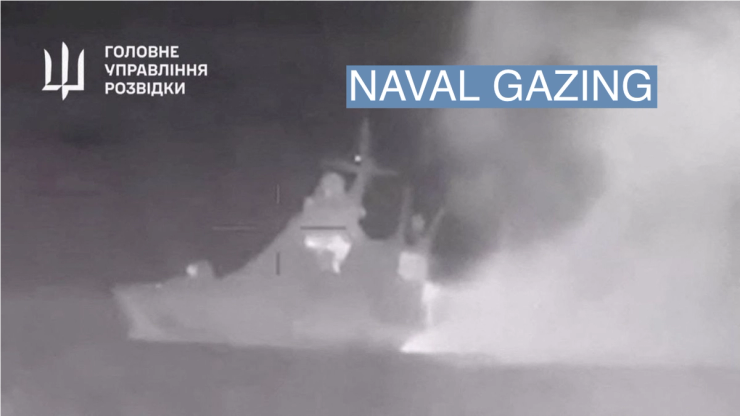The News
Ukraine’s navy said it has sunk or disabled a third of all Russian warships in the Black Sea since Moscow launched its full-scale invasion of the country.
Navy spokesman Dmytro Pletenchuk told the Associated Press that Ukraine’s goal is a “complete absence of military ships of the so-called Russian Federation in the Azov and Black Sea regions.”
While Kyiv has faced setbacks on land, it has recorded key successes at sea, putting pressure on Russia’s navy.
SIGNALS
Ukrainian navy struggled ahead of the war
Before the war, Ukraine’s naval fleet consisted largely of Soviet-era surface ships and limited infrastructure on land, Radio Free Europe/Radio Liberty recently noted. Widespread budget issues, corruption, and civilian procurement meant that the fleet lacked funding and struggled to survive. Ukraine has since clawed back some naval capabilities despite Russia’s effective blockade on major ports. “Ukraine has prosecuted a classic asymmetric campaign against what was a significantly stronger opponent,” Mike Plunkett, senior naval platforms analyst at defense intelligence research company Janes, told the outlet. The change means that Russia, which levied huge control over the Black Sea just months ago, is now “pinned back into the eastern portion and unable to exert sea control over the region.”
Russia is ‘losing the war at sea’
Russia has become increasingly frustrated by Ukraine’s military success at sea: Last week, Russian President Vladimir Putin dismissed Navy Admiral Nikolai Yevmenov, one of the largest shake-ups in Russian leadership since the war began. Moscow’s recent “losses were the latest in a long line of humiliating setbacks for the Russian Black Sea Fleet, which is currently losing the war at sea,” wrote Peter Dickinson, editor of the Atlantic Council’s UkraineAlert blog. “Ukraine’s success in the Battle of the Black Sea will not prove militarily decisive in a land war, but it has provided a significant boost to the country’s war effort,” Dickinson said.
Kyiv’s strategy doesn’t involve bolstering fleet
Ukraine has no large warships, instead relying on patrol vessels, drone boats, and foreign-supplied cruise missiles to target Russia’s naval fleet, defense journalist David Axe wrote in The Telegraph. Ukraine has avoided trying to ape Russia’s naval capabilities — a tactic that is paying off, Axe argued: “By not even trying to match the Russian fleet ship-for-ship, the Ukrainian fleet has been able to find asymmetric advantages and exploit them to devastating effect.”



